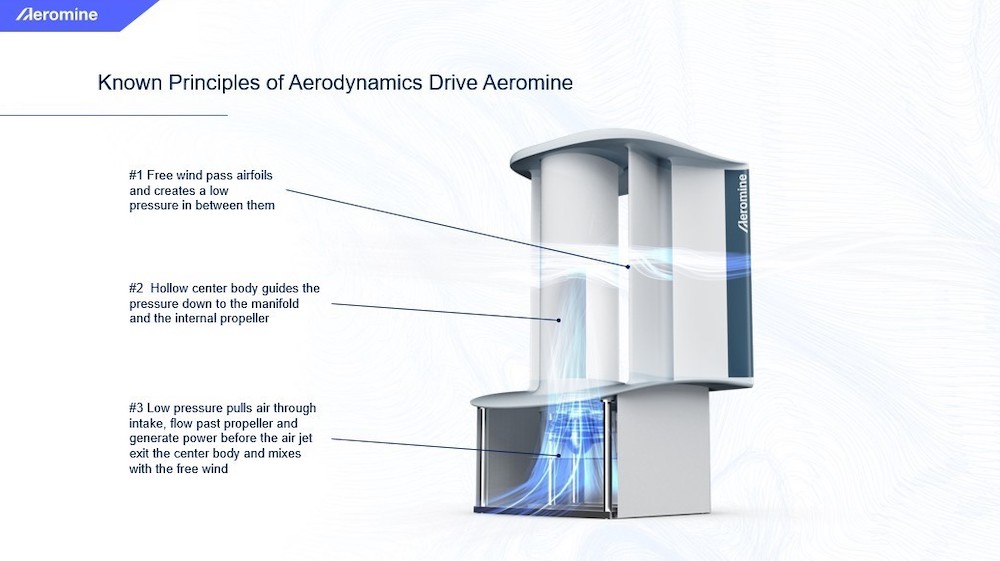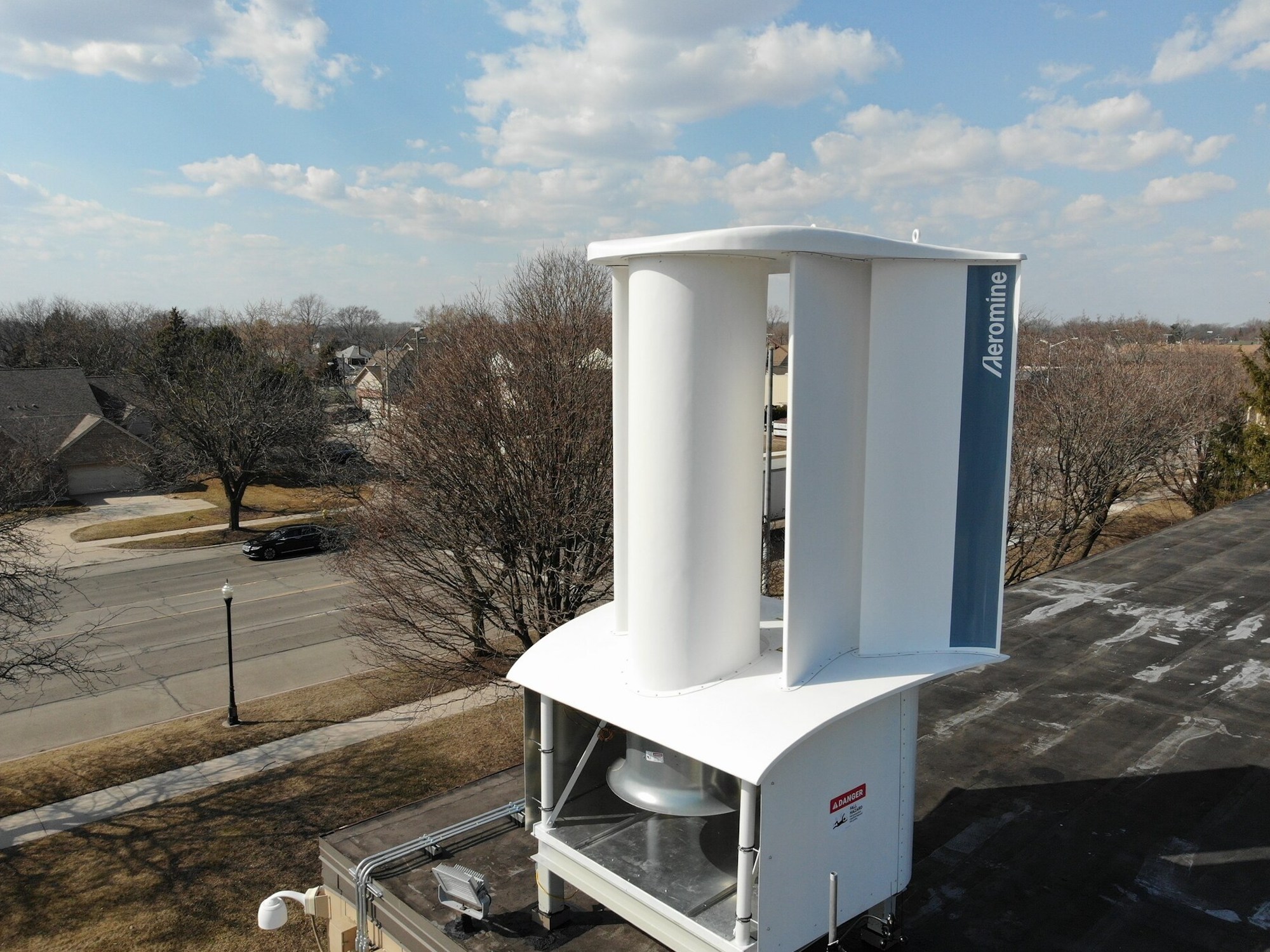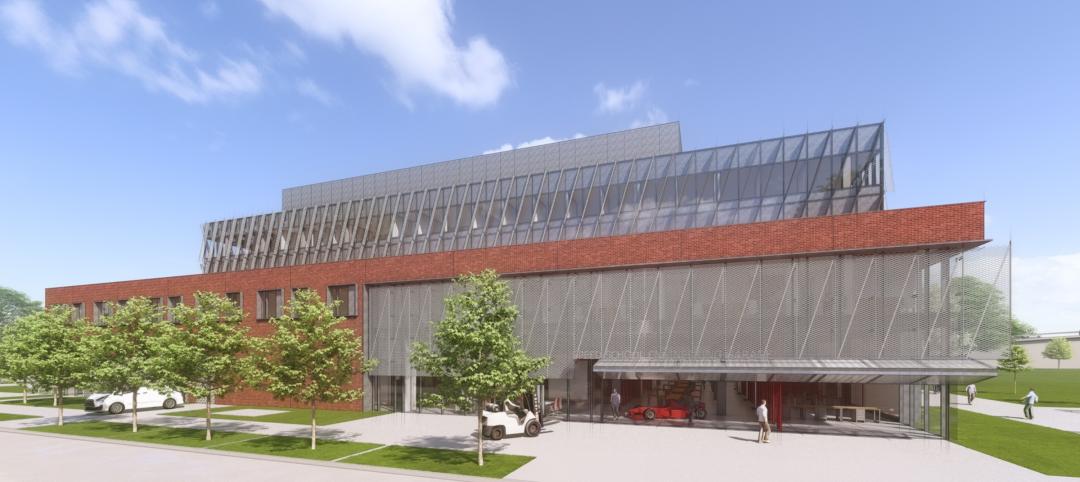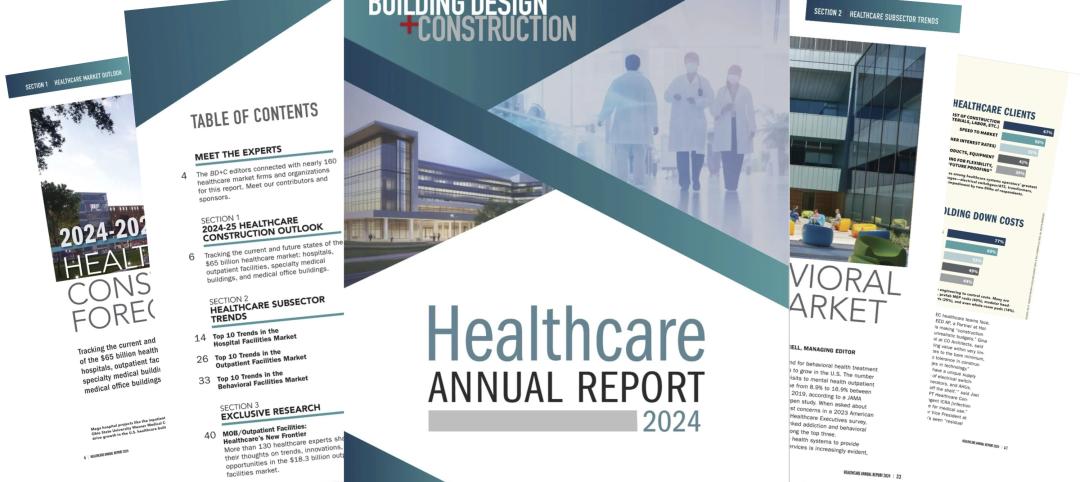Typically, “wind energy” conjures up images of massive turbines in large fields or out at sea. Aeromine Technologies has created a bladeless wind energy system that sits on the rooftops of commercial properties and provides onsite renewable energy. The motionless system integrates with a building’s existing electrical and rooftop solar systems.
In January, AEC Angels, an investment platform focused on emerging technologies in the architecture, engineering, and construction sectors, announced that it has endorsed Aeromine and that AEC Angels member Thornton Tomasetti has invested in the Houston-based company. AEC Angels is an alliance of industry veterans that evaluate and invest in early-stage companies with promising technological advances. Its members also include STO Building Group, Syska Hennessy, and SHoP Architects.
“Aeromine’s proprietary and innovative technology makes the promise of bringing the performance of wind energy to the built environment a reality that can increase on site generation 100-200% for any given project when paired with solar and battery storage,” Grant McCullagh, director at Thornton Tomasetti and AEC Angels’ managing director, said in a statement.
Building-integrated wind turbine with zero external moving parts
Aeromine has no external moving parts and no vibration. Like airfoils on a race car, the technology captures and amplifies a building’s airflow. Needing 10% of the roof space used by solar panels, the stationary and silent Aeromine unit can generate energy at any time and in any weather. Aeromine systems typically comprise 20-40 units on a building’s edge, facing the predominant wind direction.
Aeromine Technologies says its system is up to 50% more productive than other renewable energy alternatives. Combining Aeromine with rooftop solar can generate up to 100% of a building’s onsite energy needs, while reducing the need for energy storage.
Companies piloting Aeromine’s technology include BASF Corporation, which is testing the wind energy system at its manufacturing plant in Wyandotte, Mich.
Here is how the bladeless wind energy system works:

Related Stories
Codes and Standards | Jul 22, 2024
New FEMA rules include climate change impacts
FEMA’s new rules governing rebuilding after disasters will take into account the impacts of climate change on future flood risk. For decades, the agency has followed a 100-year floodplain standard—an area that has a 1% chance of flooding in a given year.
Construction Costs | Jul 18, 2024
Data center construction costs for 2024
Gordian’s data features more than 100 building models, including computer data centers. These localized models allow architects, engineers, and other preconstruction professionals to quickly and accurately create conceptual estimates for future builds. This table shows a five-year view of costs per square foot for one-story computer data centers.
Sustainability | Jul 18, 2024
Grimshaw launches free online tool to help accelerate decarbonization of buildings
Minoro, an online platform to help accelerate the decarbonization of buildings, was recently launched by architecture firm Grimshaw, in collaboration with more than 20 supporting organizations including World Business Council for Sustainable Development (WBCSD), RIBA, Architecture 2030, the World Green Building Council (WorldGBC) and several national Green Building Councils from across the globe.
University Buildings | Jul 17, 2024
University of Louisville Student Success Building will be new heart of engineering program
A new Student Success Building will serve as the heart of the newly designed University of Louisville’s J.B. Speed School of Engineering. The 115,000-sf structure will greatly increase lab space and consolidate student services to one location.
Healthcare Facilities | Jul 16, 2024
Watch on-demand: Key Trends in the Healthcare Facilities Market for 2024-2025
Join the Building Design+Construction editorial team for this on-demand webinar on key trends, innovations, and opportunities in the $65 billion U.S. healthcare buildings market. A panel of healthcare design and construction experts present their latest projects, trends, innovations, opportunities, and data/research on key healthcare facilities sub-sectors. A 2024-2025 U.S. healthcare facilities market outlook is also presented.
K-12 Schools | Jul 15, 2024
A Cleveland suburb opens a $31.7 million new middle school and renovated high school
Accommodating 1,283 students in grades 6-12, the Warrensville, Ohio school complex features flexible learning environments and offers programs ranging from culinary arts and firefighting training to e-sports.
MFPRO+ News | Jul 15, 2024
More permits for ADUs than single-family homes issued in San Diego
Popularity of granny flats growing in California
Codes and Standards | Jul 15, 2024
New York City code update changes definition of a major building
Changes affecting how construction projects in New York City are permitted will have significant impacts for contractors. On Dec. 11, the definition of a major building in the city’s code will change from 10 stories to seven, or 75 feet. The change will affect thousands more projects.
Adaptive Reuse | Jul 12, 2024
Detroit’s Michigan Central Station, centerpiece of innovation hub, opens
The recently opened Michigan Central Station in Detroit is the centerpiece of a 30-acre technology and cultural hub that will include development of urban transportation solutions. The six-year adaptive reuse project of the 640,000 sf historic station, created by the same architect as New York’s Grand Central Station, is the latest sign of a reinvigorating Detroit.
Healthcare Facilities | Jul 11, 2024
New download: BD+C's 2024 Healthcare Annual Report
Welcome to Building Design+Construction’s 2024 Healthcare Annual Report. This free 66-page special report is our first-ever “state of the state” update on the $65 billion healthcare construction sector.

















